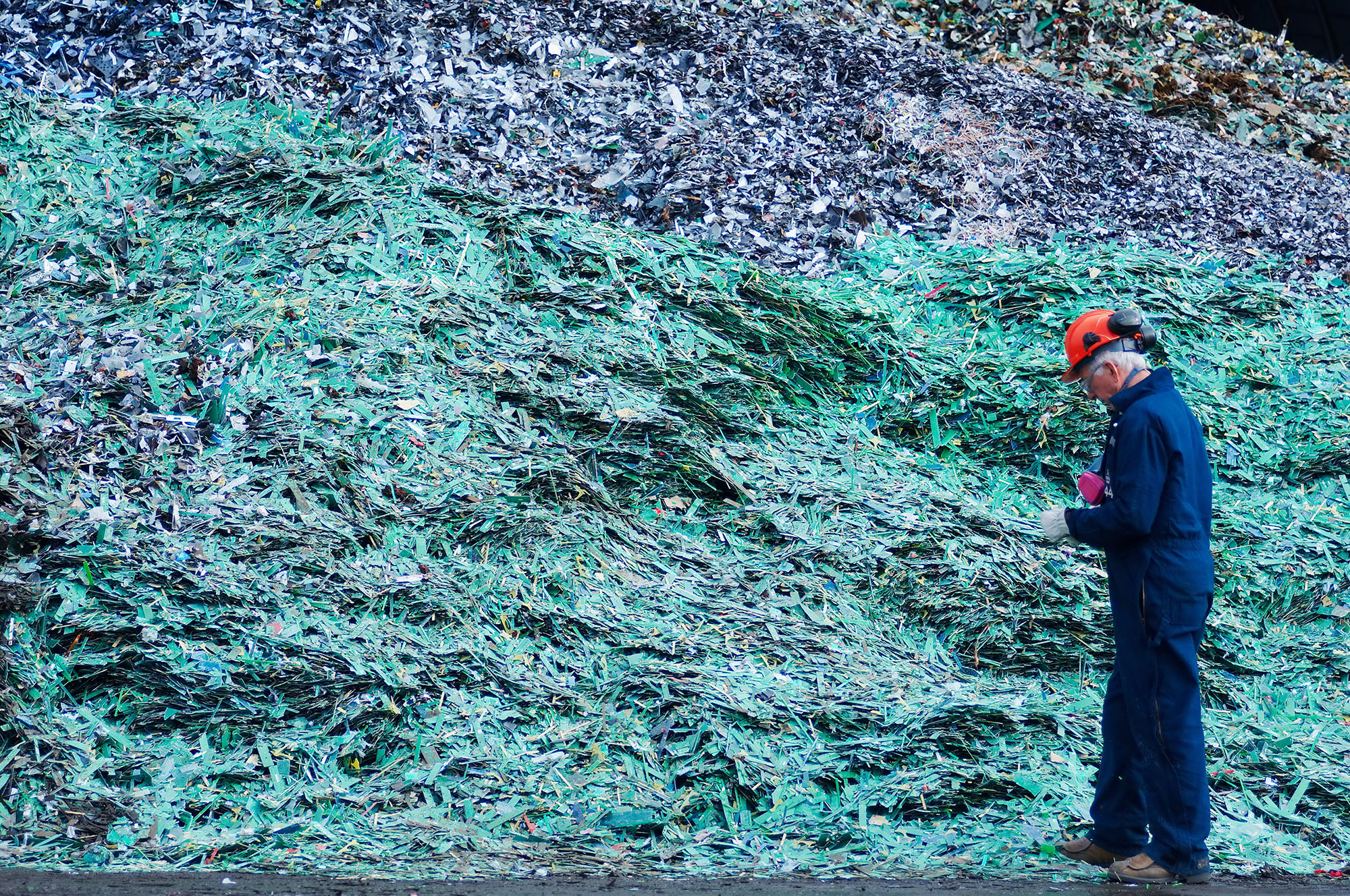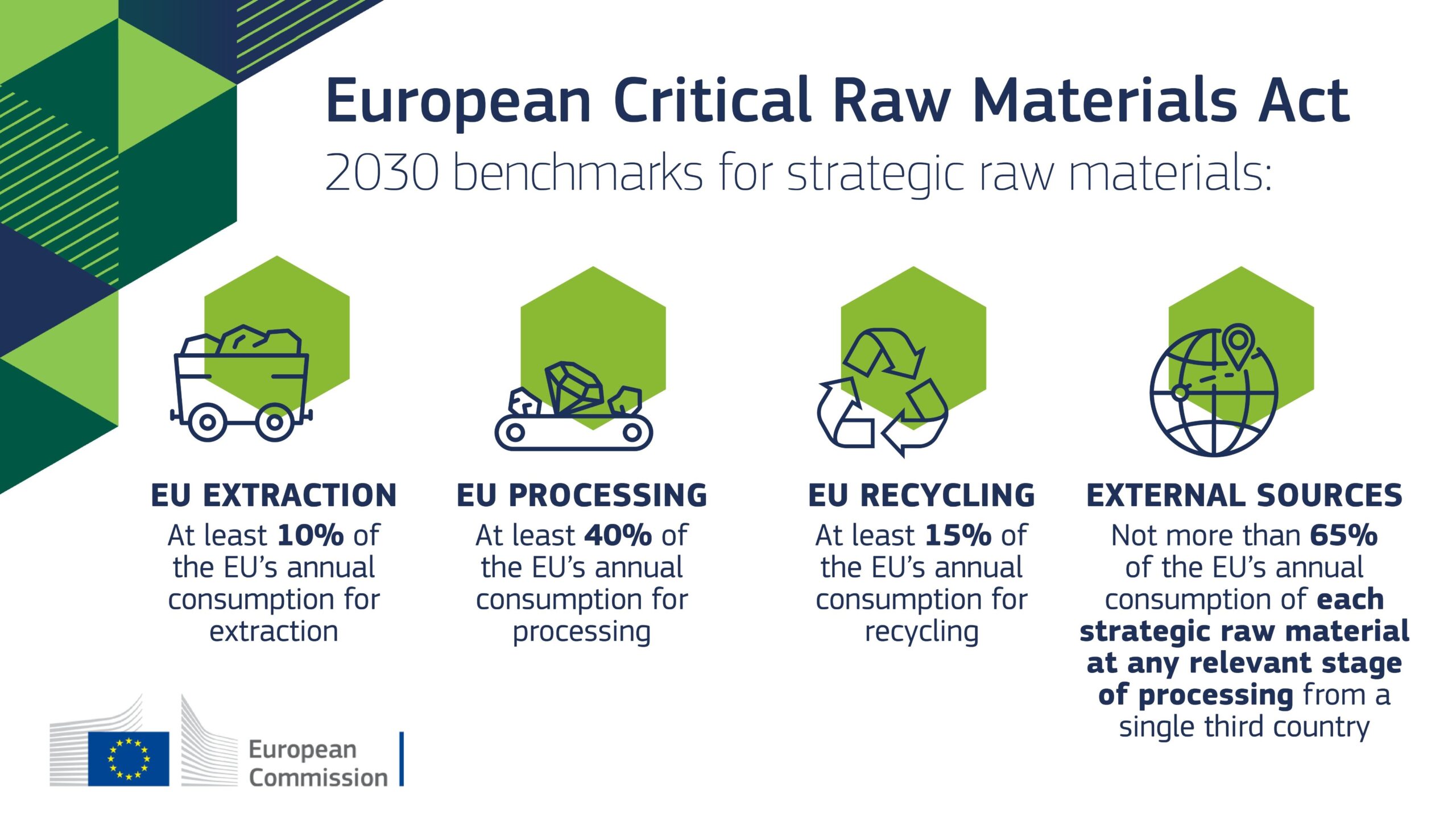Critical minerals, all the anti-Chinese plans of the EU

The European Union's Critical Raw Materials Act aims to boost domestic production and processing of minerals critical to green industry. But China is clearly ahead. Facts, numbers and insights
The European Commission presented the two pillars of its green industry plan on Thursday. One is the Net-Zero Industry Act , which aims to stimulate the internal manufacturing of "clean technologies" useful for decarbonisation (solar panels, wind turbines, batteries…) through financial support and authorization simplification. The other is the Critical Raw Materials Act, dedicated to raw materials necessary for the energy transition, such as lithium or nickel.
FINANCIAL SUPPORT AND ACCELERATION ACCELERATION
The functioning of the Critical Raw Materials Act is similar to that of the Net-Zero Industry Act: the strategic European projects for the extraction, processing and recycling of critical materials indoors will be supported from a financial and authorization point of view, with shorter timescales (for obtaining the extraction permits will take a maximum of twenty-four months, and a maximum of twelve months for processing and recycling plants).
MINIMUM INTERNAL GOALS
The Commission has also set minimum internal targets for extraction, refining and recycling for 2030. By that date, the European Union will have to extract on its territory at least 10% of the critical minerals it consumes, will have to process 40% and recycle 15%.
THE DETACHMENT FROM CHINA
To further strengthen economic and supply security – and in short, not repeat the mistake made with Russia on natural gas – Brussels would like that, by 2030, no more than 65 percent of the annually consumed quantity of a strategic material comes from a single third country. Namely from China.

Beijing, in fact, controls the refining of almost all metals critical to the ecological transition: 58 percent of global lithium refining, 35 percent of nickel, 71 percent of graphite , 65 percent of that of cobalt and 85 percent of that of rare earths.
China is the main supplier of two-thirds of raw materials considered critical by the European Union in 2020, with peaks of 95 percent for magnesium and 98 percent for rare earths.
– Read also: Critical raw materials, what the EU can do to reduce dependence on foreign countries. CDP report
THE CRITICAL RAW MATERIALS CLUB
In addition to internal quotas, to satisfy the entire need for critical minerals, the European Union says it intends to set up a "Critical Raw Materials Club", i.e. a group of suppliers and buyers made up of like-minded countries political level and therefore reliable. Beijing, on the contrary, is considered a "systemic rival" by Brussels.
The Club will therefore include countries such as Canada, Australia and the United States . Moreover, Washington, Ottawa, Canberra and Brussels are already members of the Partnership for the safety of minerals , an American-led alliance of like-minded countries, in fact, which has the objective of building an international supply chain of critical minerals "free" from influence of Russia and China.
THE INITIAL SITUATION
There are currently no lithium refineries in the European Union and there is only one rare earth separation plant in Estonia.
Plans to open lithium mines in Portugal and Germany have been strongly contested by the population.
THE TIMINGS
As in the case of the Net-Zero Industry Act, the Critical Raw Materials Act will also need the approval of the European Parliament and of the member countries meeting in the Council to become law. Both institutions could present amendments to the Commission's proposal.
This is a machine translation from Italian language of a post published on Start Magazine at the URL https://www.startmag.it/energia/critical-raw-materials-act/ on Fri, 17 Mar 2023 11:48:21 +0000.
